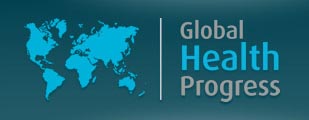“There is a public health crisis in the least developed countries. It is a crisis made by humans and solvable only by humans. There is urgency for governments, businesses, NGOs and academia to collaborate in dealing with this most urgent of problems,†declares Cameron Institute’s new 200-page report, Pharmaceutical Access in Least Developed Countries: on-the-ground barriers and industry successes.
Executive Director D. Wayne Taylor, Ph.D., F.CIM., who prepared the report, cites the recent World Health Organization’s (WHO) Draft Global Plan and Strategy for Action in stressing the importance of pharmaceutical industry partnerships. The report states that the industry must focus its energies on “the growing burden of diseases and conditions that disproportionately affect developing countries, and particularly women and children.â€
 Global Health Progress actively supports the report’s outlined actions needed to solve this issue, including endorsement of public-private partnerships (PPPs), protecting intellectual property and drug patents as the cornerstones of affordable innovation, improving access to medicines and developing new drugs.
Global Health Progress actively supports the report’s outlined actions needed to solve this issue, including endorsement of public-private partnerships (PPPs), protecting intellectual property and drug patents as the cornerstones of affordable innovation, improving access to medicines and developing new drugs.
Public-private partnerships are one key way to improve access to medicines in the least developed countries. As the report notes, the research-based pharmaceutical industry, in various public-private partnerships, has been improving access to medicines in the least developed countries of the world since the 1950’s. To date, there have been 150 public-private partnerships whose aim it is to improve access to medicines and currently 90% of PPPs are industry-led.
Additionally, innovation is cited by the report as “the hallmark of the pharmaceutical industry. Without innovation there would be no immunizations,
medicines or biologics to save lives, improve quality of lives, and to save much needed healthcare dollars. A basic right in law is to retain possession of one’s own ideas and discoveries.†The report also notes the importance of protecting this innovation through intellectual property and drug patents, as well as through the infrastructure and legal structures needed for healthy growth.
The report adds that every dollar invested in new medicines relieves the healthcare system of seven dollars of expenditure elsewhere, and that new drugs increase life expectancy and life-time income by about 1.0% per year while also decreasing years of life lost. It also provides a summary of 2010 data regarding contributions provided by research-based pharmaceutical industry to least developed countries:
• USD 8,450,000,000 of product and investment
• 950,000,000 patients treated
• 9,500,000,000 doses/treatments administered
• 350,000 doctors, nurses and other health personnel trained
Despite this progress, actions are still needed to solve the problem without creating additional difficulties. For example, even though existing medicines for HIV/AIDS has reduced mortality rates in developed countries by 70%, adherence and compliance are two major obstacles, amongst many, to the successful deployment of these drugs in developing countries. Additional barriers to access and improved health in least-developed countries include “on the ground†barriers, such as market failure, corruption, non-existent health human resources and infrastructure, and the lack of both local and international political will.
Via EPR Network
More Healthcare press releases

